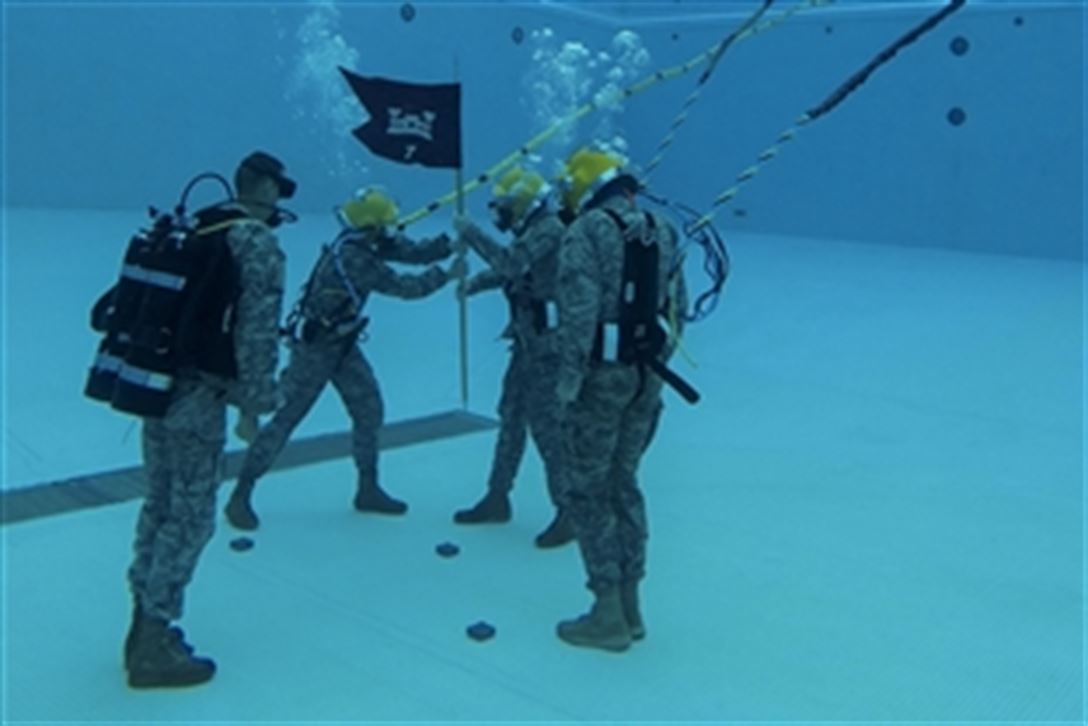
There seems to be a gulf, a divide, between veterans and those around them. I think the reasons for this divide are numerous, and many are unnecessary.
In many cases, a veteran creates this divide themselves, by isolation. Seculsion. Withdrawing. By assuming that there is no way that anyone other than those with shared experience would be able to understand. Veterans can create this divide by demanding that their needs be met, a sense of entitlement. Maybe not a sense of entitlement, but a sense that their sacrifice and their choices should mean something to those around them. The more resistance there is in getting these needs met, the more strident the demands to have those needs met; the more strident the more resistant, until there is a hardening of positions on either side.
The community, the “other” is also causing the divide. “Veterans should not act this way,” I’ve heard people say. “They volunteered for what they did, they made their bed, so now they must lie in it. After all, I made my choices”. Individuals without a frame of reference or understanding of service members must require the veteran to change: “there is no reason for them to be the way they are, don’t they know it’s safe here?” Just because you say that it’s safe doesn’t mean that veterans know that, or even that it is safe. You may be lacking knowledge of the dangers around; maybe it is you that are oblivious, rather than the veteran.
So here are the two sides, locked into a never-ending tug of war. A stalemate. The veteran and the non-veteran, neither side understanding the other or even willing to try. What to be done?
This is the imperative. The requirement. Should. Must. Someone should give me a job, after the hell I went through. I’ve proven myself as a leader in the military; therefore I should be a leader in my next career. On the other side, veterans should just get over the war. They must learn to be okay with how we do things; they must conform to our way of thinking. Even without conscious awareness, we think that these musts and should are imperative and incontrovertible.
So how to change it? Let’s look at an example from the view of psychology. Irvin Yalom, in The Gift of Therapy, states, “therapy is enhanced if the therapist enters accurately into the patient’s world.” Is the corollary true…that therapy is diminished if the counselor does NOT enter accurately into the patient’s world, or enters the patient’s world inaccurately? The therapist is on one side of the gap, and the veteran client is on the other side of the gap. If the counselor does not cross over that gap, by whatever means possible, and hang out on the veteran’s side, then it is challenging to eventually help the veteran to move over to the mental health professional’s side. The side of wellness and stability. If I reach out and attempt to drag a veteran over to my side, where I know things are great, and where they would be much better off if they would just get over here, then the veteran is going to resist. What’s so great about my side? I haven’t even taken the time to figure out what makes it so good on my side.
Alternatively, if I as a counselor, or someone who is interested in bridging the gap, moves over to the veterans side, understands their point of view, comes to an understanding of how the veteran sees the world, then there will be the opportunity to explain the benefits of your point of view. There is the possibility to integrate both sides into a new way of thinking or method of operating.
How can someone accurately enter into a veteran’s world by making assumptions about that veteran’s experiences, and acting upon those assumptions as if they were the truth? Perception breeds reality. Here is an example that I often use: There are times, when I’m lost in thought or focused on a particular situation, that I can come off as brusque, stand-offish, or unapproachable. It’s nothing personal, just my nature when I’m in my thinking space. Others can interpret that as being rude, or being a jerk. And what happens when you see someone acting like a jerk? You treat them like a jerk. I’m really not…I’m a pretty good guy when you get to know me…but no one likes being treated like a jerk. You know what happens when I think I’m being treated like a jerk? I act like a jerk.
How can anyone truly partner with someone if they make judgments based on a preconceived notion of how that particular group of individuals is “supposed to be?” If all veterans have PTSD, or all men of color who grew up in an urban environment are criminals, how much do you think that causes the individual being judged to solidify their position? After all, the person doing the judgment is confirming a preconceived notion about prejudice and close-mindedness in the eye of the one being judged. Trust is eroded, not built.
If you see me as a hero, I’m going to deny it. If you see me as a victim, I’m going to reject it. If you see me as a villain, I’m going to refute it. Each of these three stereotypes that veterans are often categorized as creates an automatic defensive reaction. It shouldn’t be that way, you say? Who says? You, because it’s your position? You have a right to your opinion, absolutely, but you also have a responsibility to accept the consequences of that opinion. Maybe you’re not aware of the consequences, and that’s fine, but that doesn’t mean the consequences don’t exist.
Any category that marginalizes someone without greater understanding of the situation behind the individual being in that category is rigid and judgmental. If there is a gulf, a divide, between veterans and their community, then the best possible way to overcome that gap is for everyone to be bold enough to step into that gap. To compromise, to change, to come to a greater understanding about the other’s position.
Without attempts on both part to bridge the gap, the gulf will continue to widen, to no one’s benefit.




1 Comment
The Post-9/11 Veteran Divide: Success or Struggle — Head Space and Timing · March 15, 2018 at 6:53 am
[…] veteran community is at a crossroads, and there is a growing divide. This is not the civilian-military divide, although that certainly still exists, but a divide within the veteran community. This divide is […]
Comments are closed.